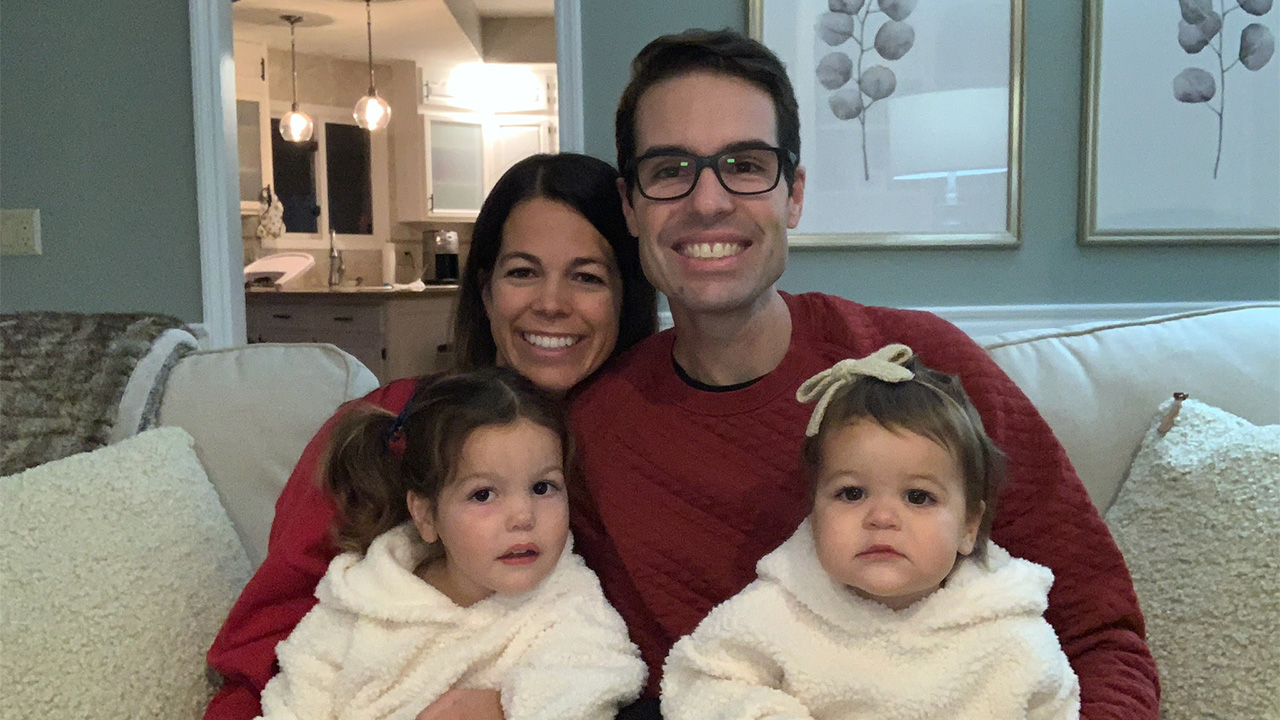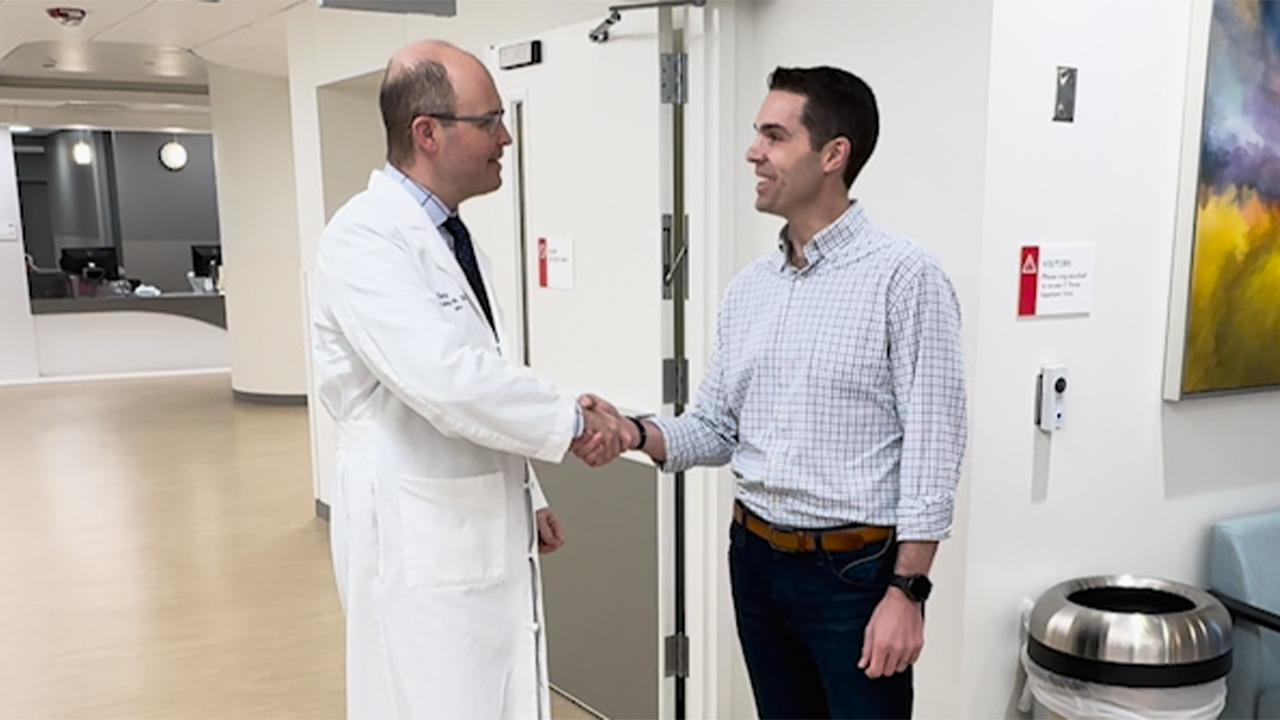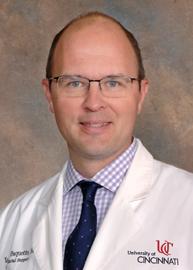When it comes to your late thirties, Matt Stenger was living the good life.
“Life was going as I expected it would,” the Hamilton County man said. “I was married, happily married with two kids and a job I enjoy.”
Stenger shared how he enjoyed keeping an active lifestyle and healthy diet.
But everything changed when he said he started having “stomach discomfort.” Stenger couldn’t figure out what was going on. Constipation? Diet changes? Allergies?
Stenger was 37 years old.
His general practitioner recommended a colonoscopy. Stenger said he didn’t have any known family history but decided in September 2021 to have the procedure done anyway.
“They found a large tumor in my sigmoid colon, so not very far. The GI doc said she didn't have to go far, and she knew exactly what it likely was,” Stenger said.
The discovered tumor was diagnosed as stage three colon cancer.
“It was really hard,” Stenger said, reflecting on his diagnosis news. “Being so unexpected and having lived my life, being healthy and being active and, and all those things, it just is something that I never thought possible. It was really hard to look at my kids,” Stenger said. “It was hard to tell my sisters,” he said, “Not be able to look at them in the face and talk to them. Talk to my wife,” Stenger said as his voice trailed off.
Stenger sought immediate cancer treatment at the University of Cincinnati Cancer Center. He teamed up with Chief of Colon and Rectal Surgery Dr. Ian Paquette, a leader in colon and rectal surgery. Here, Matt received a tailored treatment plan combining surgery, chemotherapy, and immunotherapy.
“I remember the day well,” Paquette reflected on the first time he met Stenger. “Because it's memorable for me when I meet somebody so young. I think we're seeing more and more people that are just very young with this problem.”
“He gave me some reassurance,” Stenger said of Paquette. “And [at] our first appointment, he was real with me and said, ‘It's big and it's in a bad place. He goes, but we can fix it.’And I held on to that the entire time.
Matt's treatment journey started with genetic testing. This helped determine if a more personalized approach to his cancer care would be appropriate based on the results.
“We did some, you know, genetic testing to find out what was the best case and what, what treatment plan needed to be, and quickly determined that I was a good candidate for a kind of an immunotherapy type treatment versus some traditional stuff,” Stenger said. Stenger said. “Also got set up with my oncologist, Dr. Tahir Latif, and the wonderful team here at the University of Cincinnati Cancer Center and was on my way and on treatment plan very quickly. I think I met with Dr. Latif on a Monday and had a port put in on a Friday, and had chemo on Monday, the following Monday. So we got right to treatment.”
Stenger had a successful tumor removal surgery at the University of Cincinnati Cancer Center.



